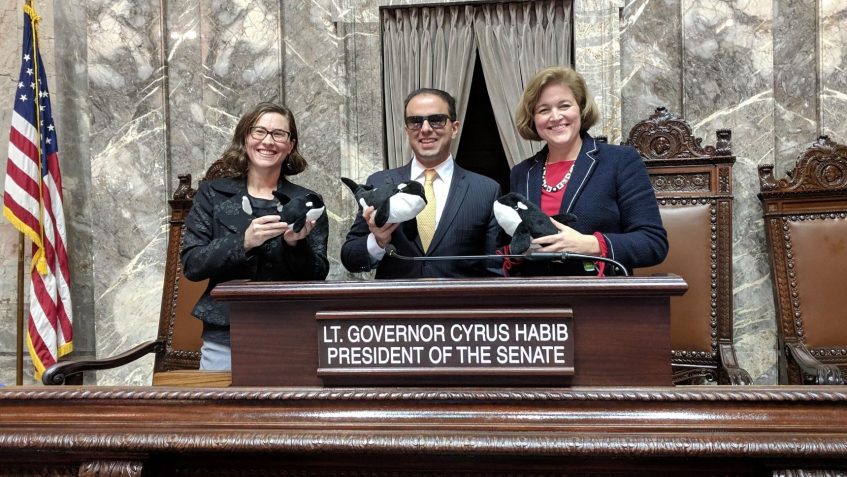OLYMPIA — The state Senate passed bipartisan legislation today to protect Washington’s most iconic animal —the southern resident orca.
“The decline of orcas in Puget Sound requires our action on many fronts, including improving their food sources, removing toxins in the water, and reducing noise from boats,” said Sen. Liz Lovelett (D-Anacortes). “Few things are more emblematic of the dire consequences of climate change than the plight of the orca. The world watched when our southern resident member, Tahlequah, carried her dead calf for a thousand miles and showed us all that we must take immediate action to protect them.”
Senate Bill 5918, sponsored by Sen. Liz Lovelett (D-Anacortes) would require state boating education to include information on these new regulations, safe whale watching distances, and other actions boaters can take to protect the health of orcas.
Senate Bill 5577, sponsored by Sen. Christine Rolfes (D-Bainbridge Island), would increase the distance boats must stay from southern resident orcas from the existing distance of 200 yards, to 300 yards in the path of the whale or 400 yards when behind a whale. The bill adds a go-slow zone — 7 knots per hour or less — for boats viewing orcas, from 400 yards to half a nautical mile (1,013 yards) from the whales.
Senate Bill 5135, also sponsored by Rolfes, would require the state to identify and manage consumer products with priority chemicals, including PFAS, phthalates, organohalogen flame retardants, phenolic compounds, PCBs, or others. These types of chemicals are local sources of toxics that can seep into our communities, impacting our communities, waters, and ultimately, the struggling southern resident orca. Managing these chemicals would reduce local sources of toxics and lessen pollution in Puget Sound.
“These bills individually will not solve this crisis, but they will improve the daily lives of orca to more easily find food, communicate clearly, and navigate their home of Puget Sound,” said Lovelett. “We also must continue to act on a wider range of issues to clean up legacy pollution, preserve watersheds and habitat, and boost declining Chinook salmon populations to save our iconic southern resident orca.” Having passed the Senate, the bills head to the House of Representatives for further consideration.




